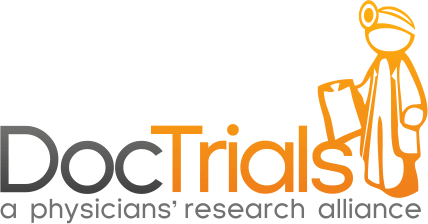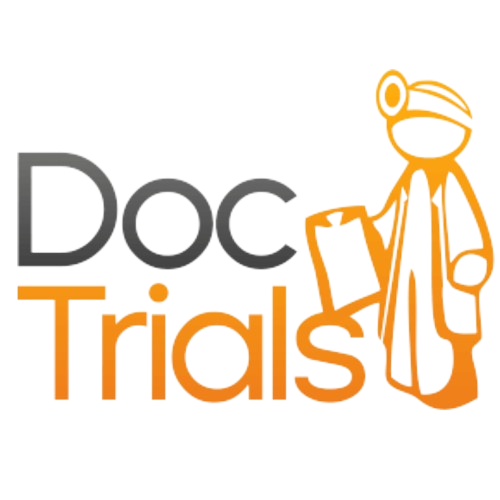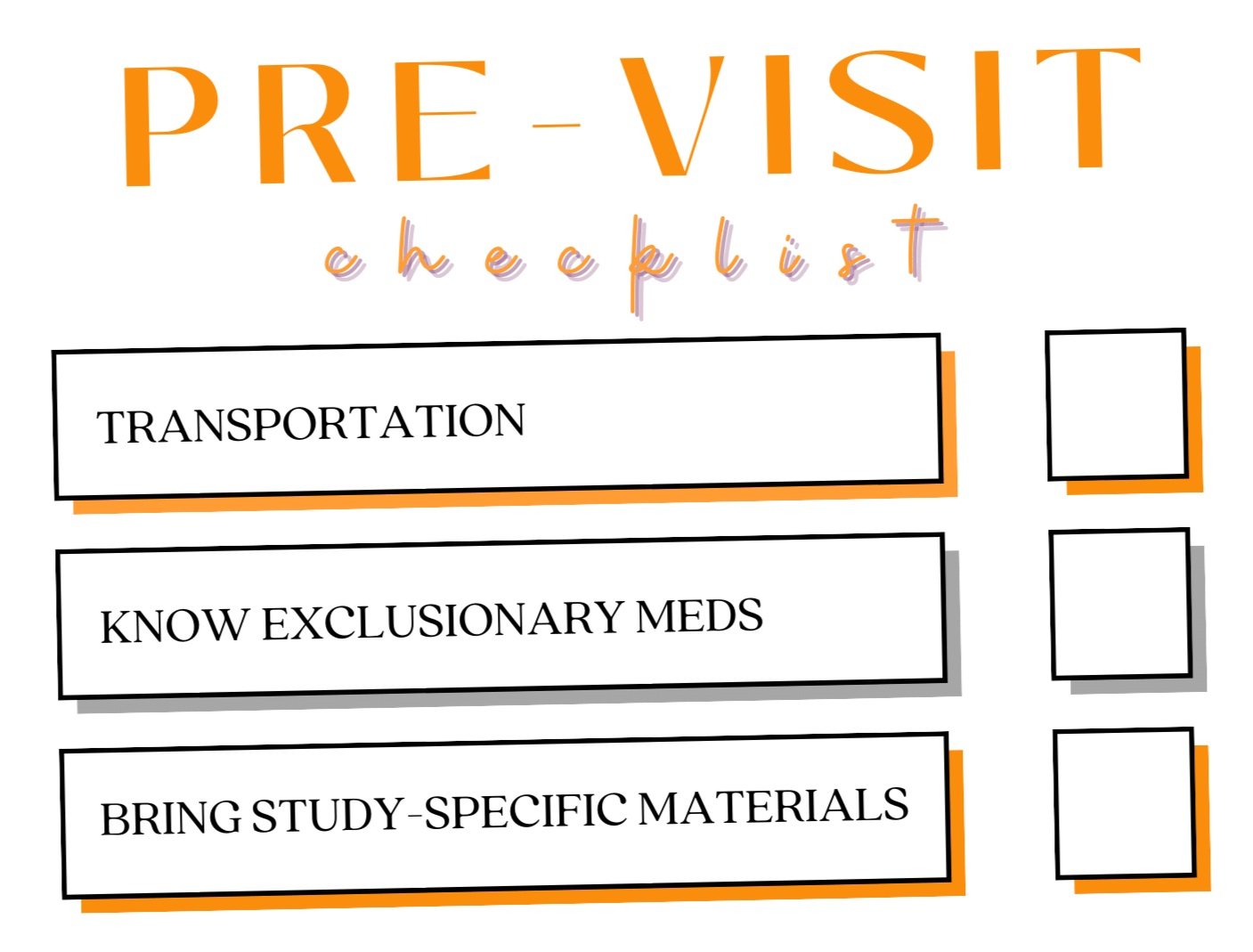
The Patient Pathway
Clinical Trials 101
Your three steps to research success.
Help others while also helping yourself.
Move forward advancements in medicine.
Receive study-related treatments and care at no cost.
Be paid for your time and travel.
Click on the buttons to learn more or reach out at 480-999-5458 to see your options.
1. FIND A STUDY
DocTrials conducts a wide array of research trials ranging from presbyopia (age-related farsightedness) to geographic atrophy to pain trials.
If you are eligible for a study below, a research coordinator will reach out and ask you further questions about your availability, medical history and medications to determine if you qualify.
-
Prior to participation in a research study your doctor and research coordinator will discuss with you the purpose of the research study and why you would be a good candidate for the study. The required procedures, therapies, potential benefits and possible side effects or discomforts will be discussed. Once all of your questions have been answered, you will be asked to sign a consent document which outlines specifics of the study.
-
After a research study is complete, the data collected is analyzed to determine if the treatment are safe and/or of benefit. Often the findings of the study may lead to further research which may include comparing the new drug to commonly used drugs, testing safety and effectiveness in children, etc. In some cases, the drug or device is approved by the Food and Drug Administration which means that it can be prescribed by a doctor for that disease or disorder.
-
Study participants may be compensated for their time and travel to attend study visits. In addition, study participants may receive comprehensive labs, EKGs, testing, and investigational medication at no cost. Medical insurance is not required to participate in a clinical research study.
-
People choose to participate in clinical research studies for a number of reasons. Some participants have been diagnosed with a disease for which no good treatment presently exists. Some participate to gain access to cutting edge therapy and access to specialists. Others choose to participate to help others, and improve scientific knowledge.
-
A placebo is an inactive, fake, or "dummy" medication or treatment designed to resemble a drug or treatment and given in the same way. Some studies may include a placebo medication. This will be outlined in the informed consent document which must be read and signed prior to participation in a clinical study.
-
Visit www.clinicaltrials.gov to learn more about clinical research studies in your area.
Visit www.nih.gov to learn more about clinical trials and your rights as a participant in a study.
2. PREPARE FOR YOUR VISIT
A clinical trial is not only a way for us to learn about you—but also for you to learn about us.
Be sure to bring any and all questions you have about the trial for the doctor.
Certain medications and supplements may disqualify you from the study. Be sure to discuss what is exclusionary with your coordinator on the phone prior, but always discuss with your doctor before discontinuing and treatments or medications.
-
Certain over-the-counter medications and supplements may disqualify you depending on study. For example, TYLENOL®, Aspirin, Lubricating Eye Drops, Lumify®, etc. The medications will vary based on the trial and the coordinator will tell you prior to your study of any exclusionary medications.
Be sure to discuss what is prohibited with your coordinator on the phone prior, but always discuss with your doctor before discontinuing and treatments or medications.
-
Be sure to look-up directions to and from the clinic as well as weather or traffic.
Some clinical trials allow reimbursement for mileage, ride-sharing, taxi, or scheduling rides. Discuss with your coordinator any travel reimbursement opportunities.
-
As we conduct primarily eye-related trials, depending on the trial you may be dilated. If so, consider that your eyes may be sensitive to light for several hours and organize transportation to and from the clinic. Oftentimes, certain trials will reimburse your travel so discuss with your coordinator about reimbursement opportunities.
-
Always refer to the coordinator for information concerning how to prepare for your first visit.
Some first visits require pharmacokinetics (e.g drawing blood) and therefore you may be instructed to fast prior to the appointment.
Other tests such as a urinanalysis may require you to be well hydrated prior to the visit.
Always discuss with the coordinator or call us at 480-999-5458 for any questions or concerns.
-
We recommend that you write down questions about participating in a study to bring to your first visit.
Ask family, friends, and your primary care doctor for questions about participating in a trial.
Bring questions about logistics such as transportation, reimbursement, scheduling, parking, and more.
Bring questions about the risks and benefits of participating in a clinical trial.
-
Bringing a list of medications, vitamins, and supplements will help us in a review of your medical history faster.
-
To help us go through the appointment faster, consider itemizing your medical history and bringing it to your first visit.
3. YOUR FIRST VISIT
The first visit, also known as the screening visit, may be one of the most important aspects of enrolling in a trial. This is a great time to learn about your condition, ask questions, meet the physician/principal investigators and coordinators, as well as learn about the study.
During this visit we will review the informed consent form with you, answer any and all questions you have, and find out if you want your primary care physician (PCP) notified about your participation in the study.
Once all of your questions have been answered and the informed consent process is completed, the coordinator and physician will conduct screening tests to ensure your eligibility for the study.
-
An Informed Consent Form is the process of learning about a clinical trial before choosing to participate.
During the process you will review the purpose of the study, the timeline and schedule of the study, potential risks and benefits, and other aspects such as reimbursement.
-
Yes. Participation is voluntary and you may drop out at any time for any or no reason. You can withdraw or decide to not participate without affecting your health care at the clinic site.
-
The length of the first study visit depends on each individual study. Please reach out at 480-999-5458 if you have any questions.
-
Unfortunately, usually once a clinical trial has completed the patient will not be able to continue with the investigational treatment.
-
All clinical trials must be approved and monitored by a third-party Institutional Review Board to ensure the risks are as low as possible and are worth the potential benefits.
Once the trial is approved, those conducting and organizing the trial must follow through a carefully created plan called a protocol that outlines the exact procedures of the trial. The Informed Consent explains the key aspects of the protocol and outlines the known risks and benefits of the trial.
-
As in the name, the informed consent form aims to inform you about what you need to know about the study.
The length of the informed consent form is primarily due to the key points:
· The purpose of the clinical trial.
· How long it will take.
· What will happen during the trial.
· All potential known risks and benefits.
· How your medical information will be protected and shared (if applicable).
As well as any other key points. It is critically important that you take the time to review the consent form and, if you would like, to share it with your family, friends, and primary care physician.





